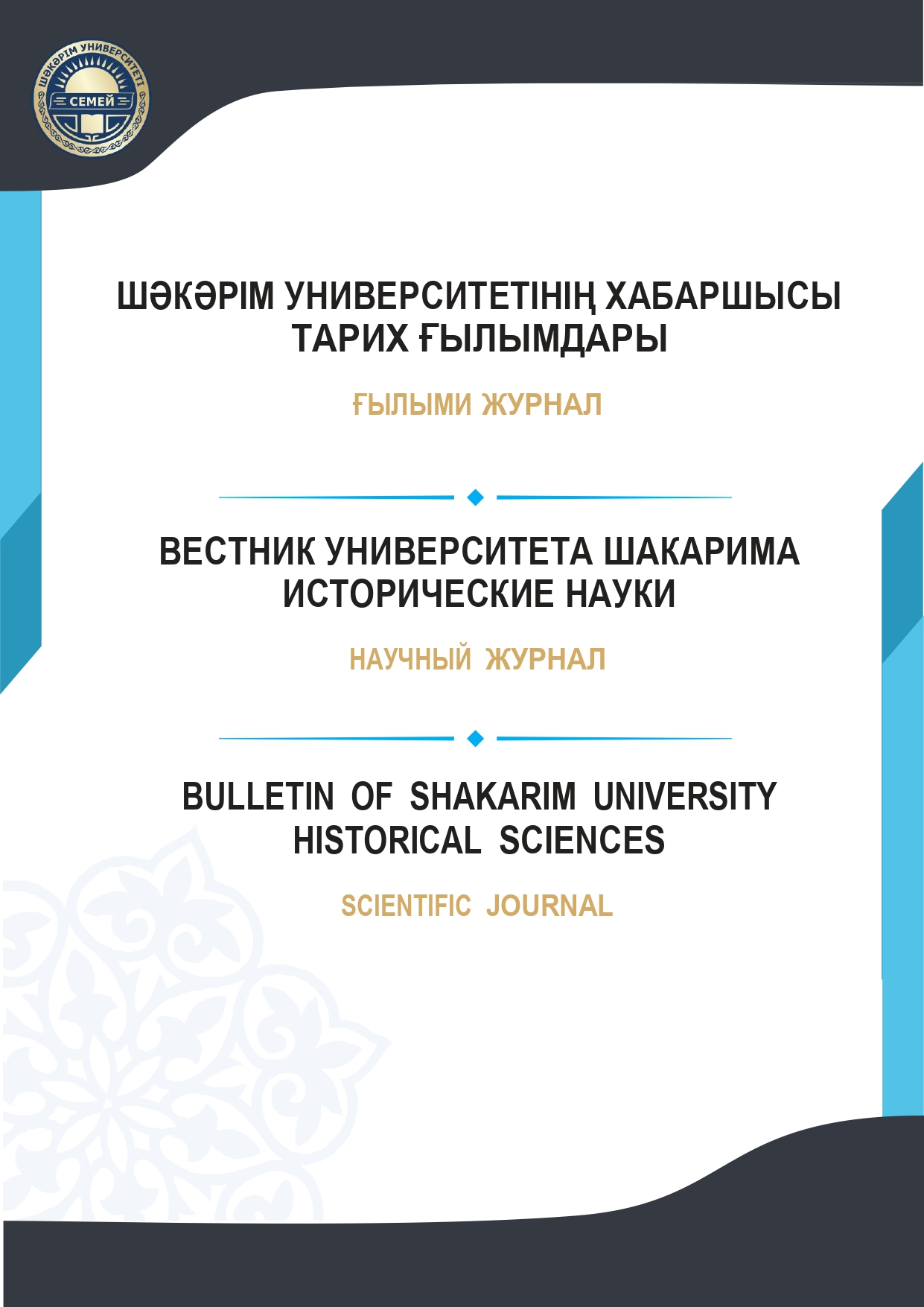SOVIET LAND REFORM AND ITS IMPACT ON INTERETHNIC RELATIONS IN THE IRTYSH REGION (1920–1940)
Ключевые слова:
land and water reform, national-territorial autonomies, agrarian policy, modernization, resettlement policy, Soviet government, Bolsheviks, land management, Kazakh ASSR.Аннотация
This article examines land disputes and their impact on interethnic relations in the Irtysh region during the 1920s–1940s, based on archival sources. The main objective is to analyze the specific features of land conflicts, their influence on interethnic interactions, and the role of state policy in this process. The study identifies the key socio-economic and political factors that triggered tensions among various ethnic groups and investigates the role of local authorities and public institutions in resolving these disputes.
The research relies on archival materials from the Presidential Archive of the Republic of Kazakhstan and the Central State Archive, introducing previously unused data into scientific circulation. Special attention is given to the consequences of collectivization, resettlement policies, and changes in land legislation. The establishment of the All-Union Resettlement Committee in 1926 turned the Irtysh region into one of the main targets for “surplus land resources,” which led to numerous conflicts among Kazakhs, Russians, Ukrainians, Cossacks, and other communities living in the region.
The use of archival documents provides a deeper understanding of the dynamics of these conflicts, emphasizing the decisive role of economic, social, and cultural factors in shaping interethnic relations and allowing for an assessment of the effectiveness of state and local responses to land disputes.
Загрузки
Опубликован
Выпуск
Раздел
Лицензия
Copyright (c) 2025 Arafat M. Mamyrbekov (Автор)

Это произведение доступно по лицензии Creative Commons «Attribution-NonCommercial» («Атрибуция — Некоммерческое использование») 4.0 Всемирная.
Copyright presupposes the integrity and responsibility of each co-author who made a significant contribution to the writing of the article.
The author has the right to store his publications in an institutional or other repository of his choice, provided he provides the appropriate link to the journal’s website.





